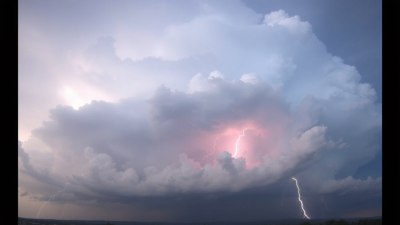The Science Behind Jumping Into a Lake and Immediately Regretting It
Explore the scientific reasons why jumping into a lake can lead to immediate regret, from shock response to body temperature effects.

This image was created with the assistance of Freepik
Jumping into a lake on a hot summer day can feel like the perfect way to cool off. Yet, for many, it often leads to an unexpected and immediate sense of regret. This reaction is not merely emotional; it's deeply rooted in our biology and psychology. In this article, we delve into the science behind that split-second decision to leap into the water and the overwhelming feeling of regret that can follow. Understanding these mechanisms can provide insights into human behavior, the physiological responses our bodies undergo, and the psychological implications of such impulsive actions.
When we think of jumping into a lake, the typical scenario includes warm weather, a group of friends, and the allure of refreshing water. However, the moment you hit the water and experience the shock of cold can create a whirlwind of reactions. This sudden change in temperature is one of the primary triggers for the feeling of regret. Our body is programmed with a mechanism known as the fight-or-flight response, which activates in response to stressors. The shock of cold water can be perceived by the body as a stressor, leading to an instantaneous cascade of physical reactions.
The Shock Factor: Cold Water Reaction
In a split second, your body goes from a warm, comfortable state to a jarring cold. When your skin comes into contact with water below 70 degrees Fahrenheit (21 degrees Celsius), it activates cold receptors, sending signals to your brain that can create an overwhelming sense of panic or shock. This is not merely a mental reaction; it involves physiological processes that can result in an increase in heart rate, rapid breathing, and muscle contractions. The initial shock can trigger your body's sympathetic nervous system, leading to an adrenaline rush that might feel exhilarating at first but can quickly turn into discomfort and regret when faced with the reality of the cold water.
Unexpected Temperature Change and Its Effects
One of the science-driven reasons for regret after jumping into cold water is that our bodies are designed to maintain a constant internal temperature, around 98.6 degrees Fahrenheit (37 degrees Celsius). When exposed to cold conditions, we are at risk of hypothermia if we remain in that environment too long. Though the initial shock may not lead to severe hypothermia immediately, you may feel the body’s urgent effort to manage the sudden temperature drop. Your body redirects blood to vital organs to maintain core temperature, which can lead to sensations of numbness or tingling in the extremities. This physiological response can induce panic, leading to the regret of having jumped in.
The Psychological Aspect: Anticipation vs. Reality
The leap into the lake is often laden with anticipation and excitement. We build a mental image of how refreshing and liberating the plunge will be. However, the immediate shock turns that image upside down. This discrepancy between expectation and reality often leads to regret. Psychological research indicates that our brains are hardwired to prefer predictability and comfort. When we break that comfort zone—by jumping into a cold lake, for instance—the sudden and jarring experience may trigger heightened anxiety and self-doubt. One might wonder: “Why did I do that?” or “What was I thinking?” Such questions often lead to a greater sense of regret.
Other Factors Contributing to Regret
Moreover, environmental factors play a significant role in our immediate emotional response. The presence of friends or the setting itself can affect how we feel while taking the plunge. For instance, peer pressure or societal expectations may lead us to jump in when we might be hesitant. Along with that, the perceived 'cool factor' of jumping into a lake can create expectations that amplify regret when the experience doesn’t match the idealized version. Additionally, if the lake is murky or infested with weeds or other objects, one might feel the immediate horror of touching something unpleasant once submerged, leading to a further sense of regret.
Evolutionary Perspective on Regret
From an evolutionary standpoint, feeling regret serves a functional purpose. It's a way for our brains to learn from our experiences, steering us away from potentially harmful situations in the future. When we leap into a lake unprepared for its coldness, our subsequent regret can help inform future decisions. Perhaps we choose to dip a toe in first next time or consider the weather conditions before jumping. This learning process is essential for survival and can enhance one's ability to assess risks and make better choices in the future.
Coping with Regret
Realizing the science at work behind the feeling of regret can also foster a more compassionate view of our chaotic human experiences. Instead of chastising ourselves for leaping into cold water, we can reframe the event as a learning moment. Accepting that these feelings are valid and recognizing them as part of the human experience is crucial. Employing coping mechanisms such as grounding exercises or mindfulness can help manage feelings of regret. After immersing yourself in the lake, take some deep breaths and remember that it was a moment of spontaneity, one that likely made for a good story later on.
Hydrotherapy and Benefits of Cold Water Immersion
Interestingly, despite the initial shock and potential regret of jumping into a cold lake, cold-water immersion has various health benefits that individuals may not be aware of. Hydrotherapy, involving exposure to cold water, has been studied for its potential to improve circulation, reduce inflammation, and even elevate mood. The key to benefitting from cold water therapy lies in gradual adaptation and properly preparing your body. Instead of an impulsive leap, consider starting with cold showers or gradually entering cooler bodies of water—a good way to train your body to acclimatize without the sudden shock.
Embracing Cold Water Experiences
So, how can one enjoy the experience of jumping into a lake without the accompanying regret? First, consider acclimatizing your body beforehand. Slowly enter the water rather than plunging in headfirst. Understand your limits; if the temperature is too low for you, it may be wiser to skip the leap entirely. Secondly, engage friends in the experience, creating a playful sense of camaraderie rather than pressure. Finally, adjust your mindset. Instead of approaching the jump with apprehension, frame it as a fun and invigorating challenge to embrace. This mental reframing can transform the experience from a moment of regret into one filled with stories, laughter, and camaraderie.
Navigating the Waters of Chance
Ultimately, jumping into a lake can yield a fascinating interplay of our body's science and our mind's expectations. From the shock of cold water triggering visceral physiological responses to the emotional reflections that come afterwards, each jump can represent a blend of impulsiveness, risk, and learning. Embrace the science, recognize the feelings of regret as part of navigating life's unexpected moments, and learn to adapt to cold water's embrace with more positivity. After all, every leap carries with it an opportunity for growth, understanding, and the thrill of adventure.











